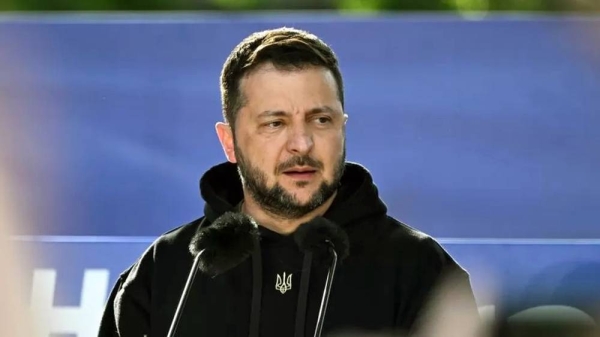
Its sturdy presence has threaded through more than 2,000 years of history, fuelled by fans that were said to have ranged from the Carthaginian general Hannibal to Roman legions.
These days, however, the longstanding tradition of swordmaking in the Spanish city of Toledo has dwindled to just two artisan swordmakers – the last living link to a tradition that stretches back millennia.
“Swordmaking is deeply connected to the city,” said Antonio Arellano of Artesania Arellanos. “If we were to lose it, it would be a tremendous loss for the city.”
As the reputation of Toledo’s swords swelled centuries ago, so did the fortunes of the city. The industry transformed the city’s narrow, winding streets, dotting them with hundreds of blacksmiths who turned Toledo into one of the world’s pre-eminent centres for swordmaking.
Coming from a long line of ironworkers, Arellano began crafting swords 30 years ago. The tradition had already been through several overhauls as swords were eschewed for munitions. No longer were clients made up of nobles and swordsmen looking for the best blade money could buy; instead, the market centred on tourists eager to take home a piece of famed Toledo steel.
Arellano at the forge
The Arellanos come from generations of ironworkers.
Even so, the sword’s place in history was enough to secure the continuity of the craft. “When I started, Toledo was a hotbed for swordmaking – all of the historical centre and the periphery were full of workshops,” said Arellano, who at 69 is the last master swordsmith in Toledo.
Advertisement
In recent years, however, the number of local swordmakers has begun to decline as they found themselves in competition with mass-produced swords, the bulk of them made thousands of miles away in Asian countries. Arellano’s handmade swords, which can take up to six weeks to create, were largely spared.
What was left of the sector was slashed by the pandemic. “It was a big blow,” said Arellano. As global travel came to a halt, the crowds of tourists that had long thronged through the city’s steep streets disappeared. “I’ve lived through lots of tough moments and we’ve always come through, but this feels more serious.”
The alarm bells began to sound earlier this year in Toledo after Mariano Zamorano, the city’s other master swordsmith, announced his retirement at the age of 70, after the owner of the building where his workshop was located decided to sell the property.
Zamorano’s family stepped in, taking over the storied family business with the aim of setting up a new workshop in the city in the autumn. “The process continues,” said Santiago Encinas of Espadas Mariano Zamorano.
The artisanal methods of swordmaking are time-consuming and costly; steel is heated in an open flame before being stretched, shaped then hammered and polished. On average it takes 15 to 20 hours to complete a sword in this way, costing an average of €400 to €500, said Encinas.
He brushed off reports of the tradition’s demise. “It’s true that it is a product that doesn’t have as much demand and, as there is less demand, it’s only logical that there isn’t space for everyone,” he said. “We’re the ones that are here now, but we’re not going to be the last ones.”
His confidence was echoed by Arellano, whose son is planning to take over the business when he retires. In his case reprieve has come from an unexpected source; the revived interest in history has prompted a cascade of orders from TV series and theatre productions seeking to create historically accurate sets.
Most recently, Arellano signed a deal with a theme park that depicts historical events, where his son will forge and craft swords in front of a live audience.
The interest hints at what will ultimately keep the tradition of Toledo’s swordmaking alive, said Encinas. “It’s a symbol, it will always be a symbol. It is a tool of history that people find very attractive.”












